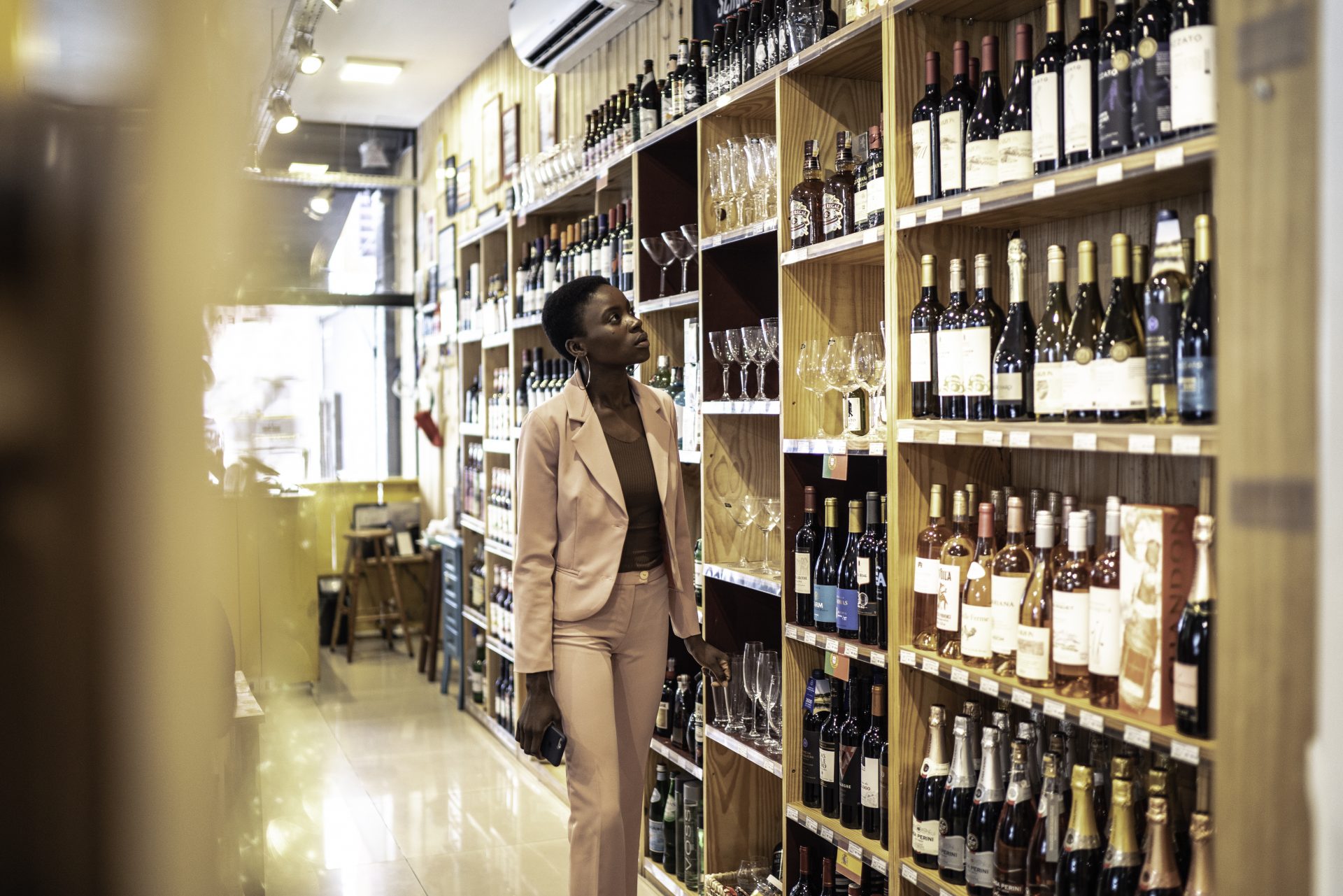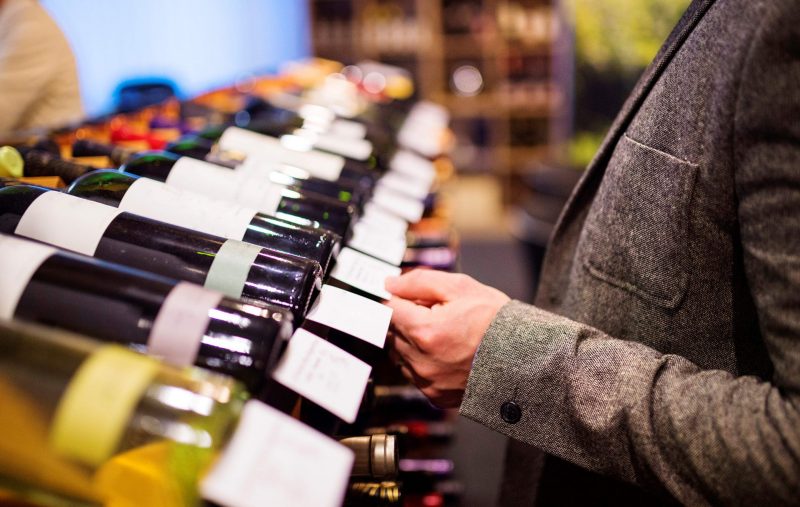Agencies on the Rise: Ontario’s Wine Middlemen

This article originally appeared in the Fall/Winter 2022-2023 print issue of Quench Magazine.
Over the last few years, I’ve noticed a greater selection for wine lovers in Ontario.
This is largely owing to the rise of ‘bottle shops,’ retail-esque displays in restaurants that sprung up after the provincial government, prompted by the shutdown in-person dining due to the pandemic, permitted alcohol to be sold to-go (with takeout food orders) in 2020. The ‘bottle shop’ selection is unique from what you would see on the shelves at an LCBO (Liquor Control Board of Ontario) store (ie. retail stores operated by the provincial monopoly), making them exciting places to shop. Many businesses have kept the model after in-person dining was reinstated, though there are reasons why we may not see the trend continuing. First, the profit margins for retail sales are lower than a restaurant model, and second, there still exists strict policy as to who can retail alcohol in Ontario (spoiler alert, this does not include restaurants).
Why and how do restaurants have wines that you can’t find on LCBO retail shelves? Because they do most of their wine buying through the LCBO consignment program. If you live in Ontario and this channel is not on your radar, it should be, as it has always been a fantastic way to find artisanal and unique wines. What is also exciting for wine lovers is that it is growing in scale.
While the LCBO provides a good selection in its stores (specifically in Vintages and Destination Collection) and online, consignment relies on the participation of agents – folks who source and vet international producers, acting as brand ambassadors and salespeople on their behalf. The LCBO does the importing and warehousing both of retail and consignment products, in consignment it is the agents who choose which wines will be imported, and whose livelihood rests upon their success.
Each agent’s portfolio acts as a catalogue, comprised of unique and oftentimes small producers or niche styles that may not fit the broader retail landscape. Historically each wine was only available to purchase by the case (which appeals to restaurants but not necessarily consumers), agents are now permitted to sell in mixed cases; another pandemic related government policy change. Portfolios can be browsed online from the comforts of home, most agents host ‘taste and buy’ events for both restaurant buyers and consumers, and many deliver or ship province wide. By buying direct through an agent you also avoid the bottle shop markup.
Now, consignment is not new, but it has had a recent facelift. The LCBO moved its current warehouse to a larger facility in 2019 “(as a) result of the sale and development of LCBO’s Head Office land which included the Toronto warehouse. It led to a once-in-a-lifetime opportunity to modernize our operations and waysmof working, providing…more opportunities for agents to partner with the LCBO to bring new and innovative products to Ontario’s market,” says an LCBO Spokesperson.

We are seeing more agents as startups, with the AGCO (Alcohol and Gaming Commission of Ontario) reporting a rise in agent licenses granted; in 2019 there were 858 active licenses and to-date at the time of writing there are 1100. Jim Lisson, president of Drinks Ontario, a membership-based organization that advocates for wine/alcohol agencies, reports a roughly 20% increase in its membership base, which is now at its highest in its history (est 1970’s). We are on the upswing, wine a-flowin’ circa the ‘roaring twenties’… but unlike a century ago, without the pesky prohibition part.
So, how does a new agent stand out from the pack in the eyes of the consumer and restaurant buyer as well as potential producer partners? Many new agents are building their portfolios with focuses such as regions or philosophies, and while not a new concept, it is useful in providing the agent with an identity. Some focuses might be quicker to become over represented though. Take for example The Living Vine; an organic, biodynamic and natural wine focused agency that Mark Cuff started over 15 years ago, well before these style of wines became trendy (in Ontario).
It is safe to say Cuff and his team have a deservedly dedicated fan-base; they are among the best for many reasons. But today, there is a plethora of new agencies that sell only such wines, and though demand is still high, it remains to be seen how they will differentiate themselves without a track record like Cuff’s.
It has also been relatively easy in the past to find an agent that specializes in Italian or French wine, but we are currently seeing underdog regions and new-wave/artisanal producers dominating agents’ portfolios.
One newcomer who is filling a void is former Yugoslavian native Vedran Lesic, owner of Azra Wines, an agency that works with up-and-coming Balkan producers. In his words, “There is definitely great interest in the wines from Eastern Europe, especially from the Balkans. The style of winemaking and the indigenous varieties in the region make for very distinctive wines. I think Slovenia is a great example of that, especially noticeable with their beautiful textural white and skin contact wines. When I started the agency there were very few wines from Eastern Europe on wine lists around the city (Toronto), and now you can find them in celebrated restaurants like Grey Gardens, Pearl Morissette or Alo, and in the great wine bars and bottle shops in the province. Azra works with winemakers that practice lower intervention winemaking and I have noticed that consumers seeking wines made following this philosophy are less concerned whether it comes from a more renowned winemaking country like France or an emerging one like Serbia.”
Restaurant buyers that I spoke with cited reliable service as the most important trait for an agent. Things like timely deliveries, organized invoicing, and an understanding of their programs are paramount. For consumers, choice dominates from whom they would buy. The question becomes how many agencies can the market support, and at what point does a healthy competitive market full of choice become oversaturated? More likely than the problem of having too many wines to choose from, is that many new agencies won’t have long-term viability. Having spoken with several veteran agents, it is evident that the transition from small scale to financially viable is a tough one.
The growing number of agencies is not without impact on producers. Ontario is a nuanced market to enter and operate in. Agents are key for a producer’s success in navigating both LCBO retail and consignment sales.
Cristiana Tiberio from the eponymous Abruzzese Italian winery talks about logistics challenges: “The method in Canada can be quite complicated, and (there is) a lot of bureaucracy in the countries where there is a monopoly… but honestly, we receive great support from our partner… the relationship is really transparent.”
Mark Cuff emphasizes the importance of maintaining excellent relationships with the wineries he represents, as he estimates 80% of new partnerships come from recommendations by his previous producers.
So, the market has a greater selection of wines to choose from, chosen by a growing and more diverse group of people, which, in my opinion, is a good thing. But there exists the possibility of instability under the surface. I love to say that a rising tide raises all ships, and in many ways that is true here. But like any wave, it will naturally recede, and my hope is that the Ontario market can continue to support a multitude of independent agents and build on the province’s burgeoning wine scene. And that the good agents and the good wines remain.
